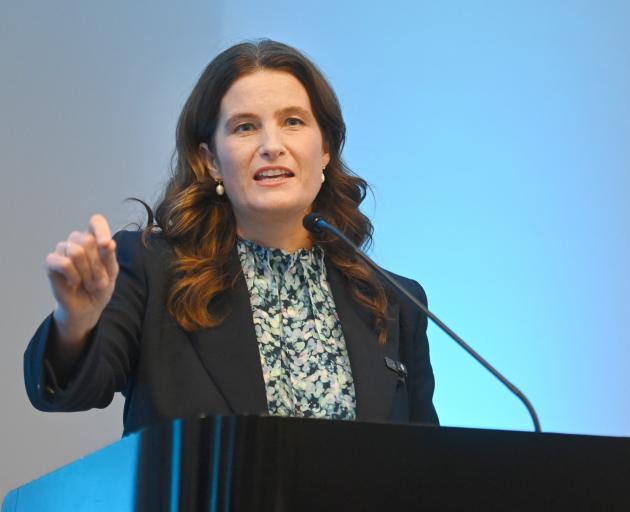
However, it was probably nothing compared to the travails of preparing Budget 2025, which she will deliver in just under three weeks.
The main event of Ms Willis’ Friday was a pre-Budget speech she delivered to the Business South-organised MINDZ conference, a presentation which was a curious mixture of "We’re all doomed" and "Everything is awesome".

Being a gifted public speaker, she was soon waxing lyrical about a country which has not only spent its savings and exceeded its overdraft but which had also maxed out its credit cards.
That country was one where the people were saddled with the highest public debt per capita than at any time since the mid-1990s, and one where $9 billion the country was paying in interest on that debt was roughly equivalent to funding its prison and justice system and the defence force each year.
Add in the economic turmoil instigated by tropical Cyclone Trump ("I can’t tell you what is going to happen because no-one knows," Ms Willis said candidly), a critical infrastructure deficit and a government which was having to prune back its expenditure, and you could be forgiven for thinking that there’s no way that you would want to live there.
But live there you do, and then came the counterpoint of Ms Willis’ speech.
It is also a country with stable inflation, falling interest rates, projected positive economic growth and predicted falling unemployment. A country which Ms Willis said she had the utmost confidence and optimism in. Go us!
As always with these things, it is a little from column A and a little from column B.
Ms Willis is right to highlight that debt is an issue and, to her credit, did not shy away from the fact that her administration also borrows a considerable amount of money each week when it issues government bonds.
Ms Willis is also correct to argue that high interest rates and inflation stifled her initial attempts to revive an economy slipping toward recession: it is debatable whether the adjustments to the tax system in her first Budget were instrumental in reversing that trend or whether the Reserve Bank and trading conditions were sending both rates down regardless.
But few people, of any political persuasion, would argue anything but that things have been tough in the past couple of years as New Zealand struggles in a post-Covid world.
From column B, Ms Willis cited Otago — top province in the regional economic confidence surveys for the second quarter running — as the poster child of a country which was confident and growing.
Ms Willis wants that spirit to permeate further afield: her prescription is economic growth plus easing of regulations equals profitable businesses and greater tax revenue for the government through GST and income tax.
She will be relying on the private sector to provide that growth: the operating balance for new spending in this Budget has been slashed and Ms Willis stressed that almost all what little new spending there is will be confined to education, health, defence and targeted cost of living relief.
It was a message tailored to the private sector, which dominated what was a packed auditorium, and going by the queue of people wanting to talk to Ms Willis afterwards it was a message that they were ready and willing to hear.
Later that day Ms Willis hooked up with the boss, Christopher Luxon, for a visit to Farra Engineering. (She had already been to Animation Research, a visit which had greatly impressed her).
The Prime Minister, Ms Willis, and several Cabinet colleagues are in town this weekend for the National Party’s annual Mainland Conference, a gathering of its South Island membership.
Mr Luxon’s timing when he comes to Dunedin has been unfortunate of late: each visit has coincided with unfortunate headlines (for the people of the South, let alone for the government) about the travails of the new Dunedin hospital.
When last here Mr Luxon bullishly proclaimed that the government was still going to build a kick-arse hospital, for $1.9 billion.
This week alone the ODT has reported that when the hospital’s inpatient block (which is still some distance away from actually being constructed) is built that it will likely have fewer open intensive care beds than originally planned, and also that the number of mental health beds for older people will be slashed.
Mr Luxon’s optimism remains undimmed: he reiterated that the government was getting on with building the hospital and that the South should be bloody grateful that they were.
Well, yes, we are . . . but the concern has always been what services will be inside that hospital when it finally opens.
That, it turned out, was a question Mr Luxon was not at all interested in engaging with.
It is one which he had better get used to though, as it is not going away any time soon.












